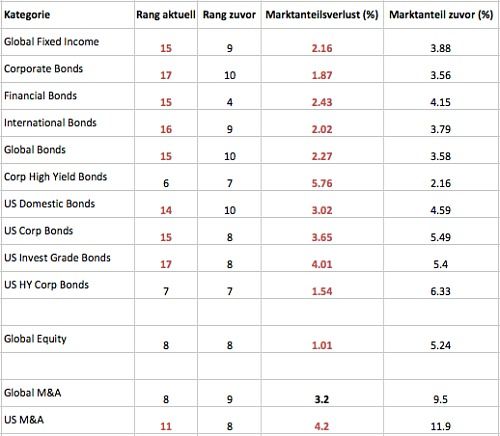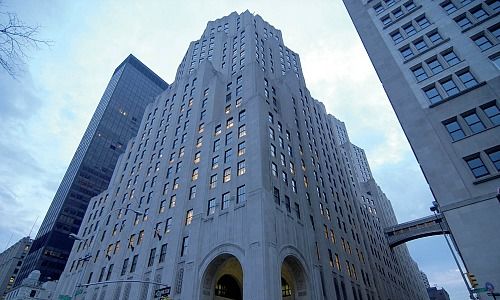Credit Suisse's New York-based investment bankers are in an open revolt against Zurich headquarters and Chief Executive Tidjane Thiam in particular. A look at league tables illustrates what is prompting their criticism.
The Swiss bank is suffering an embarrassing public revolt by its investment bankers in New York, who first took aim at Thiam in a «Wall Street Journal» story, and more recently through the «New York Times».
The CEO is accused of causing chaos at Credit Suisse's investment bank, and of «losing the building» due to his radical cutbacks and repeated public criticism of the unit.
In Figures
These anonymously lobbed accusations aren't likely to stem from just a handful of disillusioned bankers. Instead, figures show that performance at the historically proud investment bank is tanking in various areas.
Quarterly league tables compiled by «Bloomberg» illustrate two things: first that Thiam's cutbacks, especially in fixed income, have hit the bank's market share in most areas. Secondly, the league tables depict how Credit Suisse is falling behind in the all-important U.S. market for investment banking.
Q1 League Tables

No other bank dropped in the rankings as dramatically as Credit Suisse did, or lost as much market share. This can be directly traced back to further cuts made in the first quarter and in the significantly curbed capital at the disposal of Credit Suisse's global markets unit.
Less Competitive
The league table's underlying message is that Credit Suisse has become dramatically less competitive in investment banking under Thiam, who unveiled a major restructuring in October and accelerated those moves early this year.
Embarrassing missteps like overlooking $1 billion in illiquid trades at the investment bank have reinforced this view. It appears that the once-powerful trading and securities unit is caught in a spiral of cutbacks which cause revenue to melt, which in turns prompts more cutting.
It only takes a glance at press reports like the New York Times' account inside Credit Suisse to see how its investment bankers, who under former CEO Brady Dougan had enormous internal sway, feel about the current trend; resentment on the one hand because Thiam's plans appear half-baked and clumsy, and frustration on the other at the realization that investment bankers no longer play a decisive role in the bank's broader strategy.


























